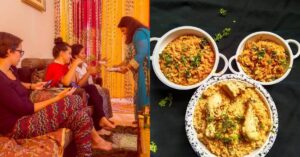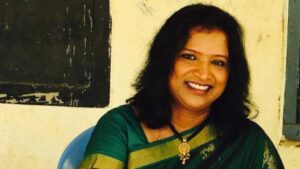Lawyer-Turned-Entrepreneur Earns Rs 16 Crore/Year With Millet Startup, Helps 1.5 Lakh Farmers
Pune resident Sharmila Jain Oswal established her NGO Green Energy Foundation to help farmers, revive water sources, and implement smart farming methods including growing water-efficient crops like millet. She also co-founded ‘Gud Mom’ with her son Shubham, which sells millet-based products. Here's her look at her journey as an entrepreneur.
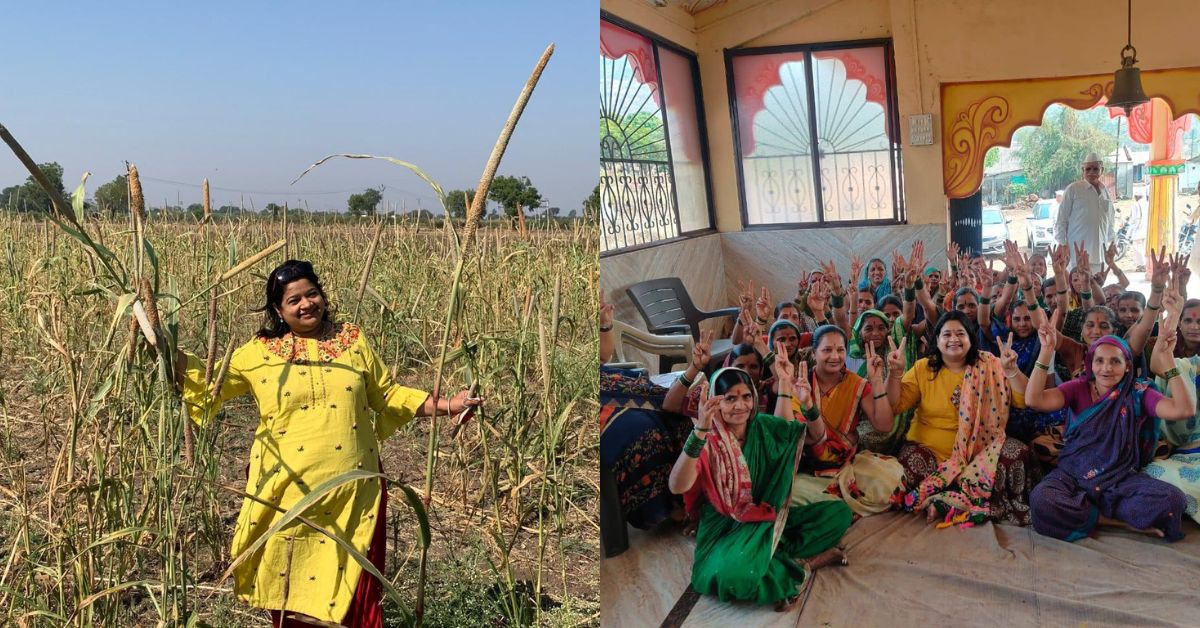
Between 2004 and 2006, there was a concerning increase in farmer suicides, particularly in Maharashtra. According to NCRB data, in 2006, 17,060 farmers died by suicide in the country, of which 1,427 were from Maharashtra. And 1,065 of these deaths occurred in Vidarbha, the state’s cotton belt.
This deeply disturbed Sharmila Jain Oswal, who was in Canada at that time.
“While I was earning good money, I was not on my own soil. I yearned to return and support the farmers, contributing to my nation’s nutritional security. Growing up in a village, I had seen the plight of farmers and knew their problems firsthand. Sadly, many government initiatives failed to reach them, leading to mounting debts and poor crops,” the 52-year-old tells The Better India.
So, Sharmila decided to quit her job and returned to Pune in 2008. She then embarked on a two-year survey across Maharashtra, Gujarat and Rajasthan to understand the problems faced by farmers on the ground.
Soon after, she established an NGO named the Green Energy Foundation to provide solutions to farmers. The foundation focuses on the revival of water sources and implementing smart farming techniques, while empowering women in agriculture.
A childhood that sowed the seeds of change
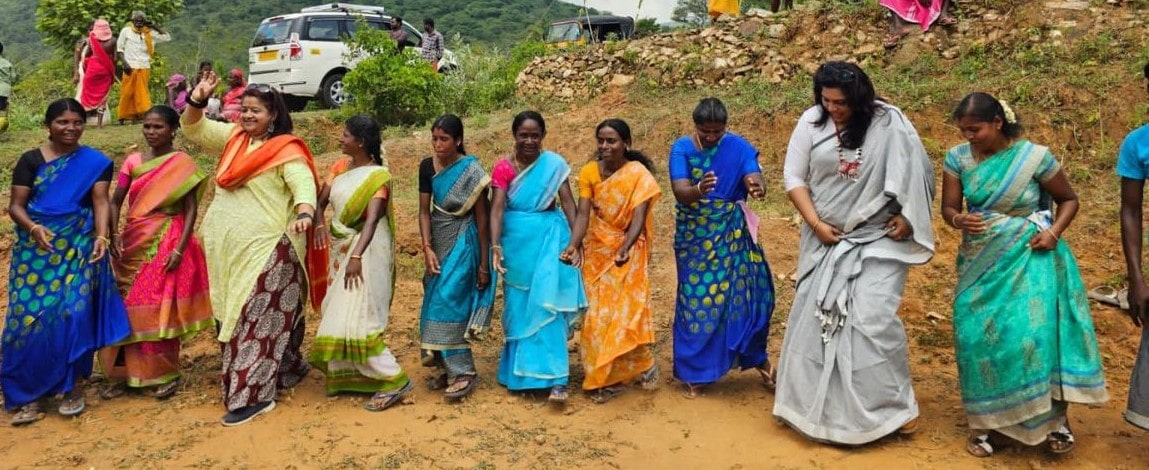
In the late 70s, Sharmila’s father ran a flour mill in Poynad, a small agrarian village near Alibaug, Maharashtra, where millets were the major grains used. Growing up there, the young girl gained insight into the challenging lives of farmers and their families.
She says she learned two important lessons from her father. One — the importance of millets; two — the concept of ‘corporate social responsibility’ even before she had heard the term CSR.
“I studied in a Marathi medium school where most of the children faced several hardships. Their fathers were farmers and didn’t have a steady income most of the time. The girls were married early and weren’t given access to higher education. Most women in my orthodox Rajasthani family also faced similar problems — including being forced to wear ghungats (a cloth to cover the head),” she adds.
After hearing stories of harassment and domestic violence from schoolmates and relatives, she decided to become a lawyer to help women facing such challenges. “I wanted a different life than my mother, sisters, or sisters-in-law. I had witnessed my near and dear ones fall victim to domestic violence. Girls in my school were denied education and married early. So, I fought for my education,” she recalls.
Sharmila now considers herself lucky because both her father and later her husband prioritised her education. However, the difficulties faced by the farming community that she witnessed growing up, such as failing crops and increasing debts, deeply affected her.
“I saw through close quarters what a farmer and his family go through when their crop fails, or when it doesn’t rain. I wanted to work towards finding solutions for these problems, as the water crisis was only increasing,” she adds.
These challenges inspired her to get a master’s degree in environmental and agricultural law in England after getting married. She worked in the UK from 1997 to 1999 and later moved to Canada, where she practised until 2007. Afterwards, she returned to her homeland in response to the difficulties faced by Indian farmers.
Helping farmers switch to sustainable methods
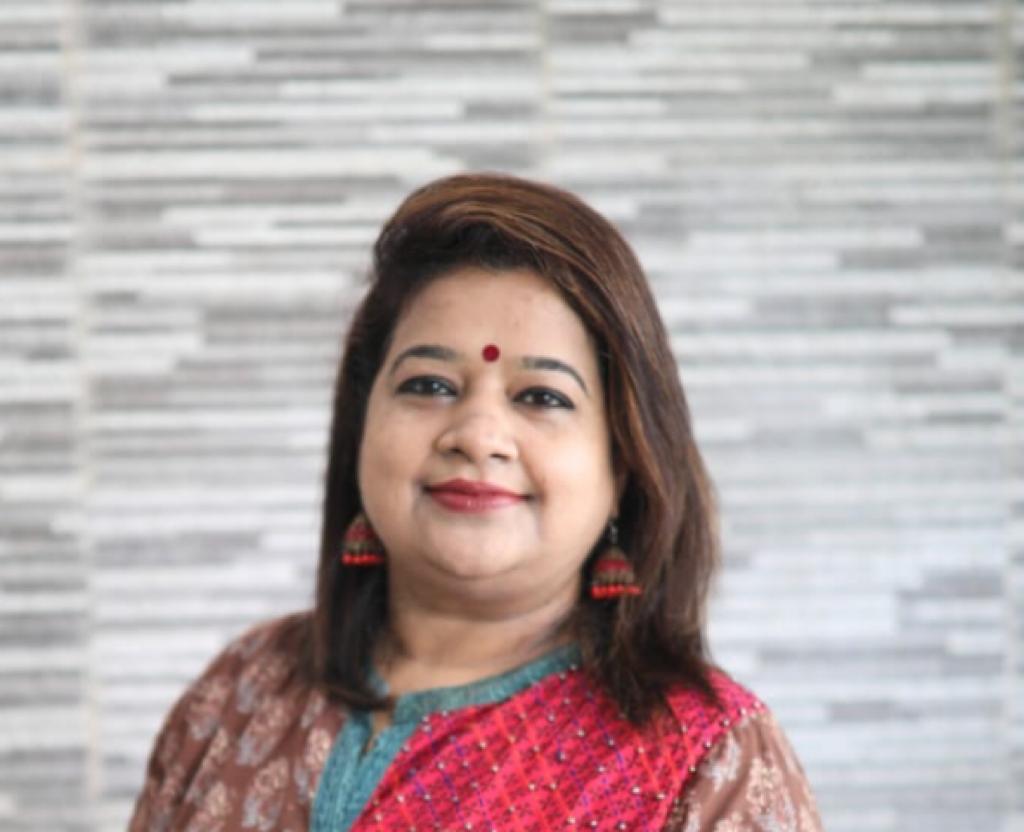
After returning to Pune and founding the NGO in 2008, Sharmila — armed with a Rs 10 lakh grant from NABARD — began her first sustainable water management program in Buchkewadi, Maharashtra in 2010.
The village was facing a water crisis due to which farming was becoming increasingly difficult.
“The entire village, which has around 40 farmers, was getting water from one small dam. We worked on a programme that would optimise water usage and increase water availability in the village. We did a detailed soil and water assessment, and worked on an equitable water distribution model. We also helped villagers regulate water usage so that they receive water even during summer months,” explains the lawyer.
Sharmila continued her work across Maharashtra, Rajasthan, and Gujarat. In Dungarpur, Rajasthan, she helped farmers move from farming just one crop — corn — to multiple crops.
“Crops like maize need a lot of water. So we helped the tribal farmers in Dungarpurby showing them how to cultivate crops like moong (green gram) using less water on their farms — through a partnership with ITC’s e-Choupal. This way, the farmers always have a backup crop in case one fails. In the process, they also gained access to ITC’s marketplace. We also assisted farmers in growing millets, which require less water,” she adds.
Dipti, a farmer from Dungarpur, says they have benefited from this programme, and that today, they also grow vegetables. “Earlier, my husband would have to go to other cities in search of work if our crop failed. Now, as we are growing lentils and vegetables, we are able to sustain ourselves well. We are able to manage even with less water, as we have a multitude of crops,” she shares.
Unleashing the magic of millet
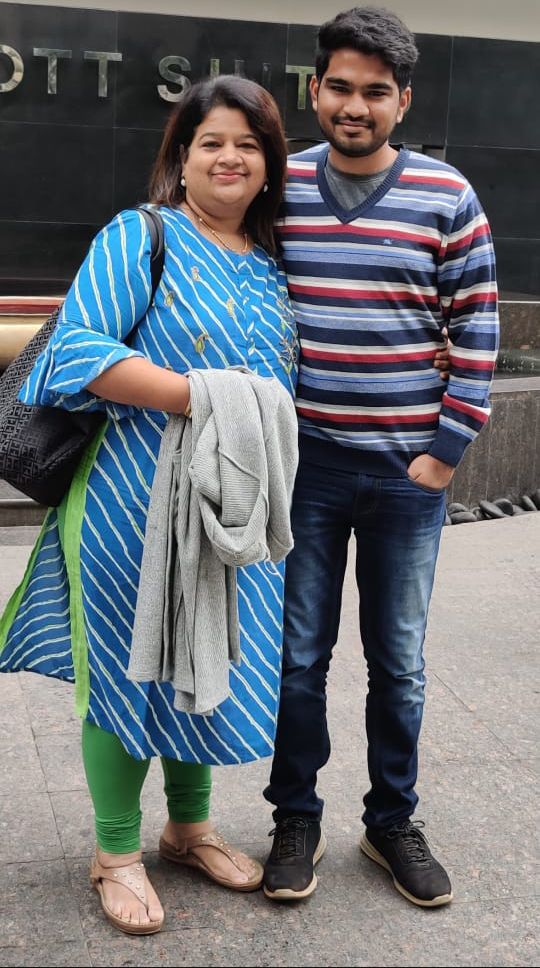
Over the past two decades, Sharmila says they have helped over 1.5 lakh farmers in five states through water management programmes, millet and vegetable cultivation, and capacity-building programmes, which has yielded a steady income for them.
Even before millet became the buzzword, this social activist urged farmers to grow this superfood in arid regions. “Millets are climate-resilient, carbon-neutral and eco-friendly. They require bare minimum water, making them sustainable,” she says.
She has helped farmers diversify their crops and conserve water by teaching them how to cultivate millets, such as ragi, jowar, proso millet, and pearl millet, as well as vegetables, including exotic ones like zucchini.
When the pandemic hit the country, Sharmila’s son Shubham was at home after completing his bachelor’s degree in political science at Ashoka University. A conversation about millets and the absence of healthy food choices sparked the idea for their startup, ‘Gud Mom’.
“During my time at the university, I saw most of my friends consuming junk food. We also saw many youngsters affected by lifestyle diseases. To help combat this and also provide a good market for farmers, we launched a startup based on a farm-to-fork model to sell millet grains and healthy millet-based snacks,” says Shubham Oswal.
‘Gud Mom’ sells millet noodles, pasta, cookies, crackers, herb sticks and more through their website, on Amazon, and via other retailers. Most of the grains and ready-to-eat items are priced between Rs 48 and Rs 150.
“Our goal is to build a healthy ecosystem. Nowadays, children consume too much junk food, which is not good for them. We have transformed millets into a variety of appealing products with international flavours and seasonings that the current generation enjoys. We want to build the immunity of the nation,” he adds.
The startup today has an annual revenue of over Rs 16 crore and works with more than 5,000 millet farmers across the country.
‘Gud Mom’ received the Best Startup in Organic Farming 2021 and the ‘Poshak Anaj Award 2022’ from the Indian Institute of Millet Research. Sharmila was recognised and lauded by Prime Minister Narendra Modi for her work in increasing millet cultivation in his ‘Mann ki Baat’ programme.
She says she now hopes for a day when millets will be distributed under the public distribution system (PDS). “If we want farmers to grow more millets, they should be distributed in ration shops. They are healthier than wheat and rice. They should also be included in the mid-day meal scheme to encourage widespread consumption,” opines Sharmila.
You can buy their millet-based products here.
Edited by Pranita Bhat
Sources
NHRC
If you found our stories insightful, informative, or even just enjoyable, we invite you to consider making a voluntary payment to support the work we do at The Better India. Your contribution helps us continue producing quality content that educates, inspires, and drives positive change.
Choose one of the payment options below for your contribution-
By paying for the stories you value, you directly contribute to sustaining our efforts focused on making a difference in the world. Together, let’s ensure that impactful stories continue to be told and shared, enriching lives and communities alike.
Thank you for your support. Here are some frequently asked questions you might find helpful to know why you are contributing?


This story made me
-
97
-
121
-
89
-
167




